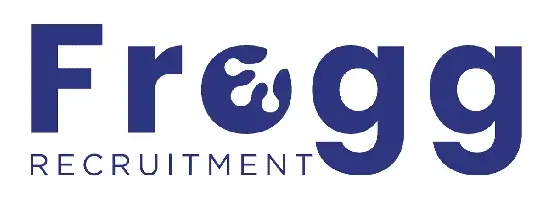What are the 10 most common interview questions?
Do you intend to ace your upcoming job interview? But how and what? What are the 10 most common interview questions? An interview can be difficult to navigate, but with the correct preparation and information, you can confidently answer any question. We offer answers to all your questions, from “Tell me about yourself” to “What are your strengths and weaknesses?”
We are aware of how important it is to present your qualifications in a way that will astonish the interviewer. This will help you differentiate yourself from the competition and raise your chances of getting your dream job, whether you are a new graduate or an experienced professional.
Do not pass up this chance to obtain an advantage in your upcoming interview. Let us begin your journey to interview success. Examining the common interview questions and how a suitable applicant would respond to them is an essential part of preparation for interviews. Are you looking for more information regarding our expertise read up about our Finance & Accounting recruitment.
Listed below are the 10 most common interview questions with answers: Free Cv template
Tell me about yourself.
It can be intimidating to answer this question because one is not always sure how to do so. It does, however, give you as a candidate the chance to introduce yourself and explain why you are a better choice than the competition. Beyond what is on your résumé, the interviewer is interested in learning why you would be a good fit for the position. To start the conversation, you should supply enough personal and professional information in your response to the inquiry. Keep a balance between sharing personal and professional information. Below is an example.
Answer: “Because I run, I have discovered that the discipline and concentration needed to finish a race have aided my development of exceptional time-management abilities in my professional life. In my earlier position, for instance, I was able to successfully juggle several projects and deadlines, assuring consistent on-time delivery. Additionally, I have discovered that my love of rock climbing has contributed to the growth of my cooperation and communication abilities, both of which have been beneficial in my professional life.”
What interest you about this role?
A popular strategy you as a candidate can use is researching information about the company and the role you applied for. Focus on a specific area within the company that legitimately interests you such as the company’s reputation or history. This shows that you have a high interest in the role you are being interviewed for.
Answer: “My prior success and experience will enable me to meet my modest goals in a number of areas, including XXX. I am also eager to find out more information about XXX. The company’s purpose is in line with my personal and professional ideals, and I think I’d fit in quite well with the company’s culture. I loved what I read in the recent article by the CEO about the initiatives the company is undertaking to ensure ongoing enhancement to culture and employee engagement.”
What are your biggest strengths?
Mention your greatest strengths that apply to the role to ensure that you are set apart from other candidates. Be honest and genuine about it as you do not want to produce an answer that the employer wants to hear.
Answer: “Team management is my strongest suit. I hugely appreciate working in teams and using everyone’s special talents and viewpoints on a project, while still having fun and managing a work-life balance. Winning a team appreciation award earlier this year was one of my happiest experiences, and I’ll be honest: I genuinely like doing my part to encourage everyone to put up their best effort.”
What are your greatest weaknesses?
This is one of the most common interview questions. Mention weaknesses in a positive light. Why make your weaknesses seem like flaws, answer this question with confidence. This is another instance to show the interviewer why you as a candidate is the best fit for the position.
Answer: “I work extremely hard, but occasionally this can lead to perfectionism. Because I want things to seem perfect, I have noticed that I often check spreadsheets more than is needed or take too long to prepare emails. To make sure I am managing my schedule while still producing high-quality work, I have consistently focused on estimating how much time to spend on each assignment. I have improved my time management.”
Where do you see yourself in five years?
You may not know where exactly you want to be in five years. Avoid saying “I don’t know.” Show that this opportunity aligns with your professional plans and/or goals, skills and how this aligns with those intentions.
Answer: “In five years, I see myself continuing to work hard and progressing in my current role. I hope to have acquired the necessary skills and experience to successfully lead a team where I want to be seen as a valuable member. I would also like to have developed a good working relationship with all team members. Regarding my career, I would like to have progressed into a more senior role within the company. I would also like to have increased my responsibilities and be given more opportunities to use my creativity.”
What is your ideal work environment?
Do research beforehand to see what answer is most beneficial to you as a candidate. You may never has worked in the environment of the role you applied therefore you may not know what to expect.
Answer: “I enjoy being part of a team therefore I believe this would be an ideal work environment for me. Being part of a team when team members support each other or share ideas is where I thrive. When I need to focus on a task, I do work well alone. An environment where I can grow my skills and be surrounded by like-minded people is ideal to me. “
What is a major challenge you have faced?
This question represents you with an opportunity to talk about your work history. The answer supplied here can make you appear impressive. Think of an applicable challenge and how that challenge was overcome before the interview to highlight skills.
Answer: “In an earlier role, a manager recognized my work ethics and increased my work responsibilities. The increased responsibilities proved to be too much, and I began falling behind and missing deadlines. To increase my productivity overall, we hired another person. I no longer missed deadlines.”
What are your salary expectations?
This question seems complicated to answer as you do not want to make it seem like the sole reason you want this role is for the salary. Do some research about the market and how much the industry pays. Decide a reasonable salary based on your experience and skills.
Answer: “I am flexible and open to discussing salary for this position. My skills in this industry add value to my candidacy. From my research, similar positions pay XXX to XXX. Considering my experience, skills, and value that I can bring to this company; I anticipate the salary be on the higher end.
Can you explain the gap in your CV/Resume?
Employment gaps refer to periods in a professional career when you did not have employment. Gaps in your CV/resume may occur due to a number of reasons. Whether it was to obtain another qualification, retrenchment or even relocation. Regardless of the reason, an interviewer may ask you about it. When this happens, it is important to be honest. Don’t have any regrets read this article to gain more experience in how we operate as a Finance & Accounting recruitment agency.
Answer: “The gap in my CV/resume is indicative of me having travelled, pursuing another degree and well as volunteering. I took this time to focus on self – improvement and I am now to return to the work field. “
What are your career goals?
Employers want to know what your intentions are. Be transparent and honest but do not try to oversell yourself as the perfect candidate. State whether you intend to stay with company or whether you have plans to progress in a different environment.
Answer: “In my current career, I would like to improve my skills and as I progress and take on new roles, I hope to acquire additional skills that will be beneficial to not only the company but myself as well.”
In conclusion, revise these 10 most common interview questions and be prepared for your upcoming interview. If you want to find out more about what view do as one of the top personnel agencies, view Our Expertise. For more blogs like this, read this article Impressive questions to ask during an interview. Follow us on Facebook, LinkedIn and Instagram to be notified whenever we post a new blog.
Related Posts
-

High performing and high potential...
- 2 Comments
- 1228
Continue ReadingThe impact of high performing and high potential employees on employers
Determining which of your staff members are high performing and high potential employees can be difficult as an employer. However, precisely what distinguishes high performance from high potential?
Firstly, the recognition among business executives that the success of their organizations depends on the caliber of their talent pipeline. Additionally, talent management is what caused the change toward emphasizing good employer branding. Furthermore, employer branding plays a crucial role in the ability to distinguish between high potential and high performing employees.
What they are: High performing and high potential employees
High potential employees:
A high potential employee, or HIPO, is a person who has the ambition, drive, and aptitude to advance to the top of the organization and pursue success there. Since it shows their potential, HIPO personnel exhibit a thirst and ambition for further responsibility.
They can take initiative, are quick thinkers, and have the soft skills necessary to become part of the future generation of leaders. Ability, social skills, and drive are three characteristics that companies should look for in high potential candidates.
Ability:
In addition, high potential personnel can develop the abilities, skills, and knowledge required for a leadership position. Furthermore, they have an excellent IQ, making it easy for them to learn new things and use them in their profession. Additionally, they exhibit inspiration, vision, and creativity.
Social skills:
Moreover, high potential workers possess the interpersonal abilities necessary to oversee others as well as themselves. Additionally, this involves the capacity to remain composed under duress and overcome obstacles. Moreover, they can build and preserve fruitful, productive connections with their colleagues and behave themselves with respect and honesty.
Drive:
Furthermore, HIPO employees possess the drive, ambition, and work ethic needed to succeed in their positions and advance within the company. Additionally, they might be prepared to endure personal adversity to further their profession.
High performer employees:
Moreover, high-achieving employees provide valuable contributions to the company through their labour, ideas, and perceptions. Furthermore, their outstanding work stimulates creativity, efficiency, and productivity, which improves corporate results.
Additionally, these are workers who frequently advance to more difficult positions inside the company. Lastly, for almost any firm to continue to succeed, high performers are essential. Finding top performers and high potential personnel is crucial for organizations. These are the workers who can significantly improve the organization and the intended results.
This benefits both employee and employer
Companies must make sure that supervisors and managers recognize the importance of great achievers. Additionally, they need to have the information and resources needed to recognize them from regular encounters with their direct reports. This is why strategic thinking in interviews from both employee and employer is of utmost importance.
Therefore, it is crucial to ensure that top performers do not skip forward or take advantage of other chances. Moreover, this recognition of top performers should be a component of ongoing company operations and coaching. It should also be included in the performance management process.
High performers can be recognized by their productivity or results. In addition, they demonstrate a good attitude and make constructive contributions. Moreover, they can even be identified by their capacity to provide others with excellent service and assistance. Once these high performers have been discovered, it is critical that you take the necessary action to provide them with the resources and assistance they require to continue developing.
Identifying high performing employees
Many employees reach their objectives. However, top performers go above and above. After achieving their objectives, they ask, “What’s next?”
In addition, give stretch assignments to personnel who are motivated to achieve their goals. In addition to aiming higher, high achievers are always looking for ways to improve their abilities and pick up new ones. Therefore, use the goals you set for your high-performing staff to help them grow.
Additionally, high performers do not wait for their manager to schedule them for a training session. In fact, even if most employees are receptive to learning and growth, they take initiative and may be the ones willing to spend their own money and effort on professional growth.
Furthermore, managers that have top achievers in their midst should allocate a small additional sum of money to provide them with opportunities for professional growth. It is a wise investment to develop your top performers.
Moreover, it is important to ensure that high performers are genuinely justifying their participation by imparting their knowledge to the team. This will guarantee that resources are being allocated appropriately.Most employees are receptive to criticism. However, what makes a difference is how each person responds to the discussion. Moreover, high achievers consciously look for feedback to increase their self-awareness and proficiency.
In addition, every employee should receive feedback from their managers on a regular basis. Furthermore, it is the morally correct thing to do. Additionally, when speaking with high performers, it is important to remember that maintaining high performance is the aim. Therefore, structure the conversation appropriately.Employees will tell you they do high-quality work if you ask them. Nevertheless, few workers boast that they are just “phoning it in.” Furthermore, high achievers have a quality-focused approach that may seem excessive to others (or bothersome, depending on your perspective).
Consequently, it will be the goal of managers to figure out how to use this never-ending quest of perfection for the organization’s benefit. To increase quality, it can be feasible to assign top performers to task forces or project teams within the organization.Identifying high potential employees
Having a strong work ethic and a goal-oriented mindset is vital, but considering the expansion of the business distinguishes high-potential employees from regular employees. They aim to achieve exceptional work and contribute to overseeing the company’s overall success.
Long-term goals drive the organization. HIPOs possess the ability to make decisions wisely with proper planning. They aim to think about the future and make realistic long-term goals that align with broader growth opportunities.
Only possessing the hunger to grow and eagerness to learn is not enough. A high-potential employee never hesitates to take the lead and does not need to be given instructions. They come forward to learn new things and take the lead.
Resilience is a powerful tool that every leader possesses. Situations can become dodgy at times, and a deserving leader must manage them calmly. Their minds should work sanely without thinking about the stress. They take challenging situations as growth opportunities and not hurdles.
Every business must work at high-speed to thrive in the existing competition. In order to do this successfully, a HIPO is extremely flexible and quickly adapts as changes come and go. They will make necessary changes in the existing pattern where demanded.
Leaders cannot only think about themselves. However, they need to think about everyone in the team and ensure they motivate employees to boost their productivity. Additionally, a good leader always ensures a positive relationship with the team members to keep them engaged.
Conclusion
Lastly, regularly evaluating and assessing the performance and potential of employees can aid in making informed decisions regarding promotions and career advancement opportunities. It is very important to overcome unconscious bias at this point. Know your high-performing and high-potential employees. For insightful content like this, head over to our blog page and follow us on our social media like Facebook, Instagram, Twitter, and LinkedIn.
-

Overcoming “Unconscious Bias” in Employing.
- 0 Comments
- 1311
Continue ReadingOvercoming “Unconscious Bias” in Employing.
Always aim to select the ideal individual for the position. Your choice to hire a candidate is based on their suitability for the position. Or at least, you think you are doing that. You sincerely think that your choice is the outcome of a deliberative process. And that’s entirely typical. Humans, however, are unaware that their choices are frequently skewed in some way. Overcoming “Unconscious Bias” in Employing is easier than you think, one needs to focus on what’s needed. Knowing How to improve your hiring process in 8 easy steps is very important.
Your decision-making is guided by an unconscious bias. a prejudice that affects employment decisions and whether you choose to work with “the right person” but that you’re not always conscious of.
What is unconscious bias?
The phrase “unconscious” or “implicit bias” refers to mental processes that enable people to behave in ways that support stereotypes even though our conscious minds would find that action to be in opposition to our moral code. Affinity bias, which occurs when people gravitate toward those who look, act, and think like they do, is closely related to unconscious bias.
Even in the early phases of hiring, you might be more influenced than you realize by a candidate’s résumé photo, name, or location. In other words, unconscious prejudice uses characteristics unrelated to the job to affect your choice, either favorably or unfavourably.
Why You Should Avoid Unconscious Hiring Biases
Biased hiring creates less diverse teams, even though diverse teams consistently outperform homogenous teams. In the end, unconscious bias may result in financial losses for your company.
Biased hiring practices can also increase employee turnover, which can cost a company up to twice the employee’s yearly compensation in lost productivity. Why is this topic Overcoming “Unconscious Bias” in Employing so important? It is crucial to understand the concept. Hiring staff can be a daunting task. If you follow the hiring guidelines it should not be that difficult at all. Top Recruitment agencies can assist with this, we are not bias-oriented and look for candidates that match the client’s requirements. Also important is to increase your employees’ work performance during periods throughout the year.
Bias-based hiring decisions—based on stereotypes, gender, physical attractiveness, etc.—can also have serious legal repercussions.
But fortunately, there are measures in place to lessen hiring discrimination (go straight to that part). Let’s first examine the most typical forms of hiring bias, though. Do any of these things ring a bell?
Common Types of Unconscious Bias in Hiring
Confirmation Bias
Confirmation bias occurs when we make an initial opinion of a candidate and then seek out and concentrate on data that confirms that impression. This involves ignoring red indicators that contradict our opinions and asking irrelevant, unimportant interview questions that validate our beliefs.
Attribution Bias
The propensity to blame a person’s actions on their personality rather than any external circumstances is known as attribution bias. In essence, it causes us to overvalue a person’s personality features and underestimate the impact of their unique situation. Still perplexed? As we explore this unconscious prejudice in greater detail, read on for some examples.
Affinity Bias
Affinity bias, also known as similarity bias, is the unconsciously occurring human propensity to seek out those with histories, interests, and beliefs that are like one’s own. While we may believe that we deliberately choose the individuals we associate with based on their moral qualities, the truth is that we often struggle to be unbiased in our choices of friends and acquaintances. People frequently gravitate toward others just because they make them think of themselves.
Halo Effect
The “physical attractiveness stereotype” and the “what is beautiful is also good” premise are other names for the halo effect. Overcoming “Unconscious Bias” in Employing the best candidate for the position at hand should not be the end of the world. It’s simply changing your mindset.
A form of cognitive bias known as the “halo effect” occurs when our overall opinion of a person affects how we feel and think about their character. In essence, your assessment of a person’s general impression (“He is nice!”) affects your assessment of that person’s specific characteristics (“He is also smart!”). People’s perceptions of one quality can influence their perceptions of other characteristics.
Horn Effect
In many ways, the horn effect is the exact opposite of the halo effect. The horn effect is a cognitive process whereby we quickly attribute unfavorable attitudes or behaviors to someone based on one element of their appearance or personality. Obese people, who regrettably are sometimes characterized as being sluggish, slovenly, or irresponsible, are an example of this. Hiring supervisors could have a “bad feeling” about someone right away based on their appearance, speech, or even body language.
Difference between the horn effect and the halo effect
Halo effect: A positive first impression that leads us to treat someone more favorably.
Horn effect: A negative first impression that leads us to treat someone less favorably.
Conformity Bias
When we consciously align our behaviors, beliefs, or attitudes with those of a group, conformity bias emerges. Other people can impact us even when they are not physically there because this transformation occurs in reaction to either real or perceived group pressure. For instance, how we perceive what other people are doing often determines how much energy we use at home, how much we pay in taxes, and how much we donate to charities.
One aspect of social influence is conformity, or the propensity to have the same views as the majority. The many ways that other people might affect our conduct are referred to as social influence. Small groups and society at large both exhibit a tendency to conform, which can be caused by both subtle unconscious influences and social pressure.
Gender Bias
Unintentional and automatic mental associations based on gender that are derived from customs, expectations, norms, values, culture, and/or experience are referred to as unconscious gender prejudice. Automatic associations are used in decision-making to quickly assess a person’s gender and gender identity and stereotypes. Organizations can work to combat gender bias and other forms of prejudice, so even when a person exhibits unconscious gender bias, this does not necessarily convert into prejudice in the workplace.
Affect Heuristics
This occurs when recruiters conclude a candidate’s suitability for the position without thoroughly weighing all the available data.
Simply said, you are making decisions about someone’s eligibility for a job based on unimportant, superficial considerations that have no bearing on how they would approach the task at issue. For instance, you might assume that someone is incompetent because of their evident tattoos or because they are overweight simply because you don’t like that personality attribute or trait of theirs.
Overconfidence Effect
When someone’s subjective judgmental confidence exceeds their objective judgmental accuracy, this impact is what happens.
For instance, when someone feels overconfident making employment decisions based on their gut feelings is a smart idea. Overconfidence is frequently the product of confirmation bias (see below), which makes people recall instances in which following their intuition resulted in a successful hire while ignoring or forgetting instances in which it failed.
Avoiding Unconscious Bias in Recruitment
When you aren’t aware you’re doing something, it can be difficult to quit. The good news is that you can recognize your prejudices and even acquire strategies for minimizing them.
Let’s examine the tactics that are successful in decreasing recruitment bias.
Awareness Training
Biases can occur during every step of the recruiting and recruitment process, from reviewing resumes to creating job descriptions to conducting interviews to extending an offer of employment.
Review job descriptions
According to studies, the language used in job advertisements and job descriptions is crucial for attracting a variety of talent. Even the choice of keywords can have a significant impact on the number of applicants for your open position. Words like “competitive,” “determined,” and “assertive” are likely to discourage female candidates, whereas “responsible,” “connect,” and “dedicated” seem to boost their response rates.
Reviewing your CVs blindly
By excluding any information that would tempt you to make judgments about applicants’ gender, color, age, or other characteristics, you can review applications objectively. You can evaluate CVs more objectively, unearth some hidden gems, and identify the most qualified individuals for your interview by removing this type of content utilizing software applications.
Standardize the interviews.
Interviews that are structured are twice as effective as those that are not, according to research. You can lessen interview prejudice by posing identical questions to every applicant.
In conclusion, even if we sincerely want to increase diversity in our employment process, unconscious bias persists. Though we may not be able to eliminate our unconscious prejudice, we can always begin by attempting to understand how it influences our hiring decisions. In the end, we’ll be more aware of it when it does occur. For more trending article topics and related content, follow our social pages Facebook, LinkedIn, Instagram




